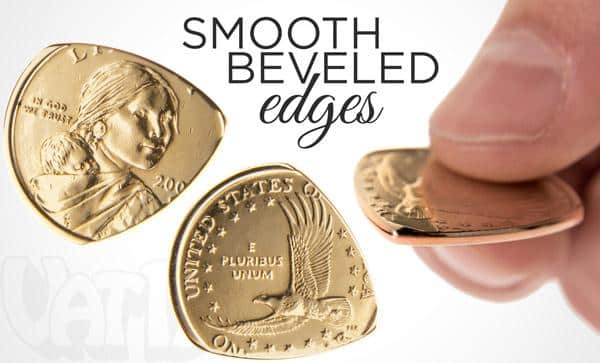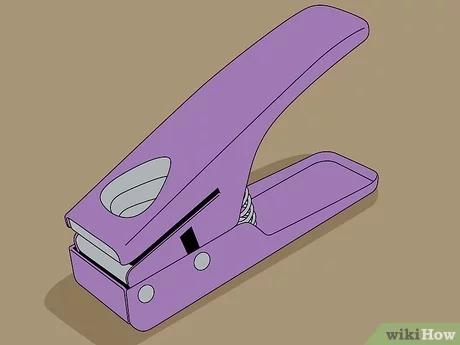Imagine standing on stage, ready to strum your first chord, when you realize your guitar pick is nowhere to be found. It’s a performer’s nightmare, yet for me, it marked the beginning of a profound exploration into *guitar pick alternatives* that forever changed my approach to playing music. As an experienced guitarist who has navigated countless styles and techniques, I’ve often found that *creativity in our tools* can lead to unexpected discoveries in sound.
Through numerous gigs and practice sessions, I’ve learned that the *best substitutes for guitar picks* can be found in the most unassuming places—from a coin in your pocket to a piece of plastic from an old credit card. These substitutes may seem unconventional, but by adapting your playing techniques, they can expand your musical expression in ways you might never expect. In the following sections, I’ll share insights and DIY solutions that have elevated my journey with these unique alternatives.
Why Consider a Guitar Pick Substitute?

In my early days as a fingerstyle guitarist, I often overlooked how small adjustments in accessories could enhance my playing experience—picks included. The common narrative focused heavily on guitars themselves, leaving the significance of *guitar accessories* in the shadows. But here’s a thought that transformed my perspective: Did you know that adapting your tools can transform your playing style and sound? This realization marked the beginning of an explorative journey into the world of guitar pick substitutes.
Why consider using a substitute instead of a traditional pick? As guitarists, we often emphasize maintaining excellent *guitar maintenance tips* to achieve the desired sound. But the tools we use also play a significant role. Different materials and shapes can bring unique textures and dynamics to the music. Changing a pick doesn’t just *alter* your tone; it also offers opportunities to develop a more personal touch to your playing style.
Throughout my experience, experimenting with unconventional picks taught me valuable lessons. It’s not always about what you have, but rather, how creatively you use available resources. Breaking away from standard picks opened a new world of sounds, encouraging me to refine my technique and expand my horizons. You never know how a small, unassuming change in your picking arsenal might revolutionize your musical journey.
Who Can Use Guitar Pick Substitutes?

Is there a guitarist out there who hasn’t faced the challenge of losing their pick at a crucial moment? Whether you’re an aspiring beginner or a seasoned performer, we’ve all been caught off guard without a pick when inspiration strikes or during a live set. Over the years, I’ve learned that this minor crisis is, in fact, a chance to innovate.
Guitarists of all levels often find themselves in situations where they need to improvise; this is where substitutes play a vital role in ensuring the music never stops. From my early days of practice in a crowded dorm room to performing on stage, each unexpected moment taught me the importance of adaptability.
**Using guitar pick substitutes isn’t just for emergencies**—it’s also a way to explore new textures and sounds. Whether you’re performing a delicate ballad or a raucous rock anthem, experimenting with different materials opens up a world of possibilities. Even if you don’t find yourself without a pick, trying alternatives like coins or folded paper can add exciting dynamics to your playing style. Embrace the unique character every material brings to your strings; each one offers a fresh voice to your musical narrative.
What Are Some Common Guitar Pick Substitutes?
Using Coins as Picks

Could a quarter be the key to unleashing a new sound from your guitar? Using coins as picks offers an exciting dimension to playing, especially when traditional picks are out of reach. I remember jamming with friends and discovering that a simple coin could create an entirely different tone—it was a game-changer. Coins, being metal, produce a noticeably brighter and sharper sound. This distinct tone can add a unique percussive element, potentially transforming your playing style.
As I pressed a coin against the strings for the first time, the increased weight and rigidity were unlike anything I’d felt with regular picks, which prompted me to adjust my technique, enriching the overall experience. With various coins available, each presenting different thicknesses and textures, musicians can explore diverse sonic palettes, from soft and intricate to robust and resonant. Understanding this not only expands your musical toolkit but also emphasizes creativity in seemingly ordinary items. Transitioning from coins, another intriguing alternative awaits in your wallet—let’s explore the versatile world of the credit card guitar pick next.
Credit Card Guitar Pick

What if your expired card could make music instead of just collecting dust? Repurposing items like old credit cards into picks was a revelation for me; it turned waste into music while still providing the necessary *grip* and *strength*. Encountering a moment when traditional picks were scarce, I experimented with this common household item, realizing that credit card guitar picks effectively bridge the gap for those seeking a temporary alternative. Their resilience and thinness closely mimic the texture and flexibility of standard picks, making them an ideal choice for strumming and light picking.
Old credit cards are abundant and often discarded, so why not upcycle them into something useful? These DIY picks not only help reduce waste but also maintain the *consistent edge and form* essential for effective playing. Crafting a credit card guitar pick involves simply cutting the card into shape, an easy and satisfying process. This innovation reflects the larger theme of adaptability within the guitar-playing community, encouraging guitarists to creatively solve common predicaments. Whether you’re a seasoned guitarist caught without your gear or a beginner exploring resources, this substitute offers a practical, environmentally conscious solution. Next, let’s explore how you can make your own guitar picks from start to finish.
How to Make Your Own Guitar Picks
Using Plastic from Household Items

Have you ever considered that the plastic waste around your home can become your next favorite guitar pick? Crafting my own picks has always felt rewarding; it allows me to personalize my sound while minimizing waste. By repurposing *household items* for *DIY guitar picks*, you can transform plastic clutter into valuable tools. Old gift cards, credit cards, or even used CDs all provide excellent materials due to their durable yet flexible nature.
Begin by identifying potential materials; simply look around your home. Cut the plastic into your desired pick shape—typically a teardrop—and use sandpaper to smooth the edges. The result is a functional pick that can align with your personal playing style, achieving a sound that complements your unique approach. Using these **creative resources** not only furthers your musical journey but also contributes to eco-friendly practices. This hands-on experience not only enhances your skills but connects you with your instrument in a deeply satisfying way, reinforcing the symbiotic relationship between music and sustainability.
Repurposing Other Materials

Could everyday materials hold the secret to achieving your signature sound? In my journey as a guitarist, I’ve discovered that repurposing materials often *unlocks a world of tonal possibilities*. Incorporating various materials into my playing not only keeps things fresh but also often leads to surprising sonic results. The thrill of crafting DIY guitar picks from unexpected items like wood shards or old CDs is unparalleled. These materials individually offer unique textures and tones, each contributing a distinct voice to your music.
To start, assess material rigidity and thickness—*crucial factors* that affect sound and playability. For instance, I once turned an expired gift card into a reliable pick. The sturdiness mimicked that of a standard plastic pick, while its slight flexibility allowed for a nuanced playing style. *Experimentation is key.* Test the different sounds and feels each material imparts—always have a file handy for shaping and smoothing edges to prevent any damage to your strings.
Repurposing found materials not only *reduces waste but also personalizes your playing experience*—every strum imbued with a story and a craft. This creativity in DIY guitar picks aligns seamlessly with adapting your playing techniques, leading you further down the path of musical innovation.
How to Adapt Your Playing Techniques

Adapting my playing techniques to various tools has been a significant part of my growth as a guitarist. It brings a certain excitement—each change teaches you something new and refreshes your approach to music. How might changing your pick—or even swapping it for your fingers—transform your music? This compelling question always sparks my curiosity and keeps my creativity alive. Here’s how it works for me.
When I swapped my standard pick for different materials like coins or the edge of a credit card, there was an immediate shift in my guitar strumming techniques. These changes didn’t just alter the sound; they challenged me to focus more on the dynamic interplay between force and finesse. Coins tend to produce a sharp, metallic sound, which can be surprisingly effective in certain genres.
On the other hand, trading picks for fingerpicking opened up a world of nuances. My fingers bring warmth and a personal touch, especially in intimate settings or softer ballads. Fingerpicking allows for more intricate patterns, giving depth and texture to each note. Through these adaptations, I realized that techniques are merely tools that can be refined or reinvented.
This experimentation with substitutes isn’t just about sound—it’s about enhancing your musical story. Daring to explore beyond the traditional reinforces a greater understanding and appreciation of your instrument. Adapting playing techniques not only transforms your music but deepens your connection to it, creating a path of continuous evolution that every guitarist can embrace.
Conclusion
Reflecting on my journey, I realize that the creativity we employ in our tools mirrors the evolution of our own playing styles. Experimenting with guitar pick alternatives can open up new avenues and transform our approach to making music. Can embracing alternatives to traditional tools redefine what it means to play the guitar? It’s a question I’ve often pondered as I’ve discovered unexpected textures and tones through coins, credit cards, and even repurposed plastic.
These best substitutes for guitar picks not only challenge convention but also encourage us to explore our artistry with a fresh perspective. As you take this leap with me into unconventionality, remember that every new tool you test and master becomes a piece of your unique musical story. Whether you’re a novice or a seasoned player, these DIY solutions inspire us to adapt and grow. The true essence of playing lies within your creativity and willingness to explore beyond the traditional. Let this exploration redefine both your sound and your practice, enriching your musical journey.
FAQs

Teja Gerken, a fingerstyle guitarist with a unique blend of folk, classical, jazz, and world music, has made significant contributions to the guitar world. Known for albums like ‘On My Way’ and ‘Postcards’, and as a co-founder of Peghead Nation, he brings his expertise from intimate venues to global stages. At Fretterverse, Gerken offers deep insights into diverse fingerstyle techniques and musical fusion.
